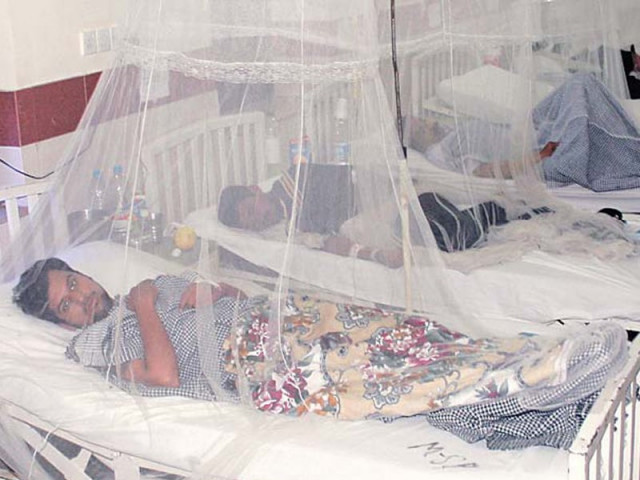Taking its natural course: Dengue fever subsides as winter takes over
Experts warn of a more deadly outbreak next year.

No new dengue cases have been reported in Swat since at least two days in what could be an indication the virus is finally coming to an end in the district.
According to the district health office, the count of dengue patients has currently stopped at 9,033, of which 6,227 are males and 2,806 females. The first case was identified on August 14 this year and the virus has spread rapidly in the valley since then. In the three months it has prevailed, dengue has officially claimed 37 lives, while 63 unconfirmed deaths in total have been reported in the district.
As this was the first dengue outbreak in Swat, locals were unsure as to how to tackle it. The Khyber-Pakhtunkhwa (K-P) government and local administration had to set up a dengue cell at Saidu Teaching Hospital (STH) for proper treatment of patients.
“All kinds of tests were conducted free of cost at the hospital since an emergency had been imposed,” said Dr Shah Darwan, a physician at STH.
The district government and non-governmental organisations also conducted fumigation campaigns to tackle the fever. K-P chief minister, Pakistan Tehreek-e-Insaf Chairman Imran Khan, K-P minister for health and several other government representatives earlier visited the dengue cell to monitor activities.
However, some dengue patients have complained about inadequate arrangements at the hospital. “Extreme mismanagement was observed during laboratory tests, while there was also a shortage of beds in the dengue unit, forcing many patients to arrange beds for themselves,” said Mukhtaruddin, a resident of Rang Mohallah.
There were also many complaints of private laboratories treating patients improperly. The government had fixed Rs350 as the cost per test, but private labs charged patients at their own discretion. Jamal Khan, a resident of Landikas, said he was charged Rs1,200 by a private laboratory in Saidu Sharif.
Social activists and medical experts have already issued warnings for next year. According to them, dengue mosquitoes would prove fatal if proper measures are not taken to eliminate their eggs and larvae.
“The virus was in its initial phase this year. However, it will prove deadly next year if the authorities do not take steps to eliminate breeding sites,” said Abdullah, a medical expert.
Published in The Express Tribune, November 15th, 2013.













COMMENTS
Comments are moderated and generally will be posted if they are on-topic and not abusive.
For more information, please see our Comments FAQ